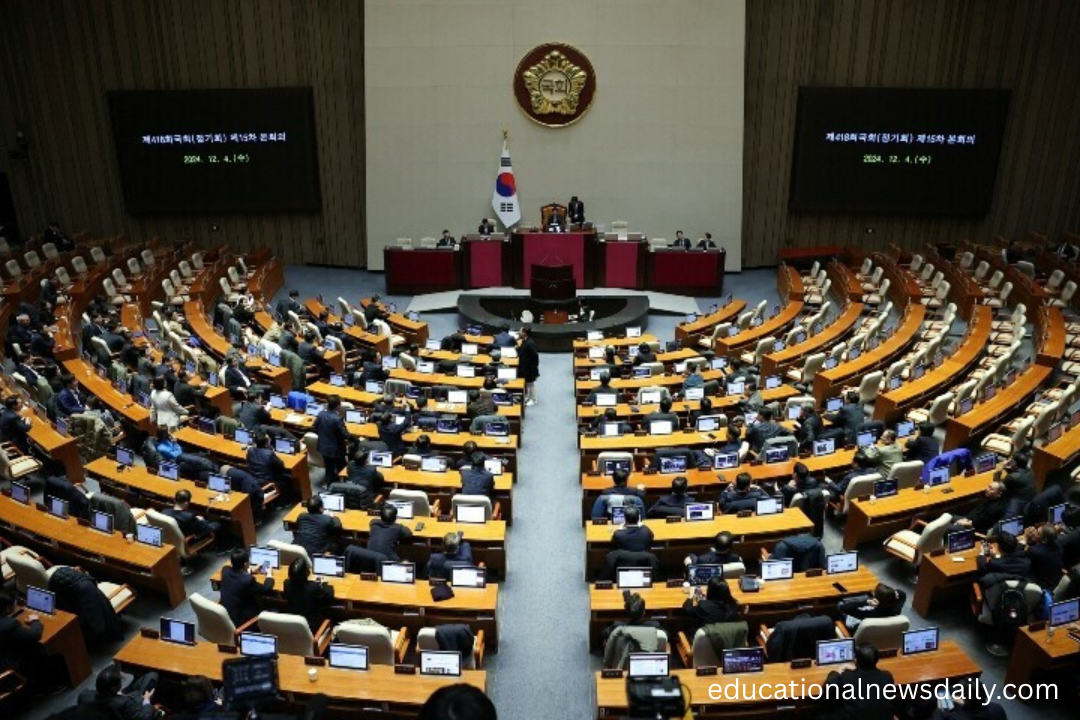In December 2024, South Korea faced a significant political crisis when President Yoon Suk Yeol declared martial law, citing threats from North Korea and internal unrest. This move, reminiscent of past authoritarian measures, led to widespread protests and a swift response from the National Assembly, which voted to impeach Yoon. The Constitutional Court upheld the impeachment in April 2025, leading to a snap presidential election scheduled for June 3, 2025.
Historical Context of Martial Law in South Korea
Martial law has a complex history in South Korea, often associated with periods of authoritarian rule. Notably, in 1980, General Chun Doo-hwan declared martial law to suppress the Gwangju Uprising, resulting in significant civilian casualties. These events have left a lasting impact on the nation’s collective memory, making any invocation of martial law a sensitive issue.
The 2025 Presidential Election: A Turning Point
The upcoming election is seen as a critical juncture for South Korea. Leading the polls is Lee Jae-myung of the Democratic Party, who has positioned himself as a unifying figure aiming to restore democratic norms and economic stability. His primary opponent, Kim Moon-soo of the People Power Party, faces challenges due to his association with the previous administration and its controversial actions.
Economic and Social Implications
The political instability has had tangible effects on South Korea’s economy, with consumer confidence declining and small businesses suffering. Lee Jae-myung’s campaign focuses on economic recovery through stimulus packages and support for low- and middle-income citizens. His approach aims to address both the immediate financial concerns and the broader issue of national unity.
Public Sentiment and Voter Turnout

Public sentiment reflects a desire for stability and a return to democratic principles. The electorate is expected to turn out in significant numbers, viewing the election as an opportunity to move past recent turmoil and set a new course for the nation. The outcome will not only determine the next president but also signal the direction South Korea will take in its democratic journey.
Frequently Asked Questions (FAQ’s)
What led to the declaration of martial law in South Korea in 2024?
Martial law was declared by President Yoon Suk Yeol in December 2024, citing security threats from North Korea and rising internal unrest as reasons for the emergency measure.
How has martial law historically affected South Korea?
Martial law in South Korea is closely associated with periods of authoritarian rule, notably the 1980 Gwangju Uprising, where it was used to suppress civilian protests, causing lasting national trauma.
When is the next presidential election in South Korea?
The snap presidential election is scheduled for June 3, 2025, following the impeachment and removal of President Yoon Suk Yeol.
Who are the leading candidates in the 2025 South Korean presidential election?
Lee Jae-myung from the Democratic Party and Kim Moon-soo from the People Power Party are the primary contenders, with Lee positioned as a candidate for unity and reform.
How has the political crisis impacted South Korea’s economy?
The turmoil has led to a decline in consumer confidence and presents challenges for small businesses, prompting calls for economic recovery plans in the upcoming election campaigns.
What are the key campaign promises of Lee Jae-myung?
Lee Jae-myung focuses on restoring democratic norms, boosting economic growth through stimulus packages, and addressing social inequalities.
How important is this election for South Korea’s future as a democracy?
The election is viewed as a pivotal moment that could help heal national divisions and reaffirm South Korea’s commitment to democracy following recent political upheaval.
What is the expected voter turnout for the 2025 election?
High voter turnout is anticipated as citizens view the election as an opportunity to shape the country’s future and restore stability.
Conclusion
South Korea stands at a pivotal moment in its history. The 2025 presidential election presents an opportunity to heal divisions and reaffirm democratic values. The choices made by voters will shape the nation’s future, determining whether it can overcome recent challenges and emerge more substantial and more unified.

